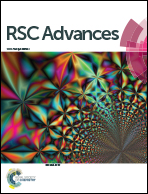Crystalline Si photovoltaic modules based on TiO2-coated cover glass against potential-induced degradation
Abstract
Potential-induced degradation (PID) in multicrystalline Si photovoltaic (PV) modules was generated by applying −1000 V from an Al plate attached on the cover glass of the module to the Si cell at 85 °C. The solar energy-to-electricity conversion efficiency of the standard Si PV module remarkably decreased from 15.9% to 0.6% after 2 h of the PID test. Increased concentration of Na species on the surface of the Si cell after the PID test was observed by secondary ion mass spectrometry (SIMS) measurement. Our results indicate that high minus voltage stress toward the Si cell causes the diffusion of metal cations, such as Na+, from the front cover glass toward the Si cell, resulting in remarkable decrease in PV performance. PID was significantly prevented by a coating of TiO2-thin film on the cover glass that suppressed the diffusion of Na+, demonstrating an attractive and promising technique for producing low-cost PID-resistant PV modules.


 Please wait while we load your content...
Please wait while we load your content...